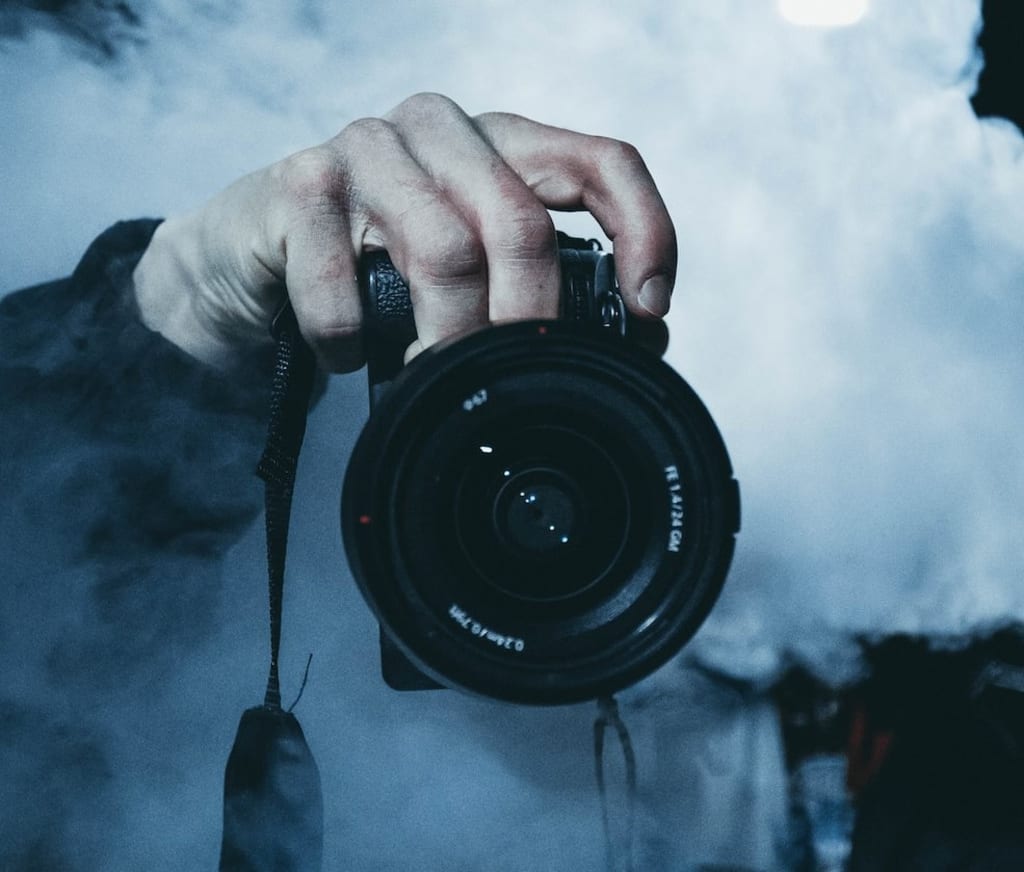Photography
"Exploring the Art and Science of Capturing Life Through the Lens"

Photography has been around for over a century, capturing the beauty and essence of the world we live in. It is a medium that has allowed us to preserve and relive memories, communicate stories, and explore different perspectives. With the advent of digital technology, photography has become more accessible and widely used, allowing anyone with a camera to express themselves through their art.
Photography is not just about capturing a moment, but about telling a story. A good photograph should be able to convey an emotion, a mood, a message or a story that resonates with the viewer. To do this, photographers must be able to master the technical aspects of photography such as composition, exposure, and focus, while also being creative in their approach.
One of the most important aspects of photography is lighting. Understanding how light interacts with a subject and being able to manipulate it to create different moods and effects is a fundamental skill for any photographer. Composition is another key element that can make or break a photograph. Knowing how to place subjects, use lines and shapes, and balance the elements of a scene can make a photograph stand out from the rest.
Photography has many genres, from landscape and portrait photography to wildlife and street photography. Each genre requires a different approach and skill set, but all rely on the photographer's ability to capture the essence of their subject in a unique and captivating way.
One of the biggest advantages of digital photography is the ability to edit and enhance photos. Post-processing is a crucial step that can transform an average photograph into a work of art. However, it's important to remember that editing should enhance the photo, not change it completely. A good photograph should always retain its authenticity.
In conclusion, photography is a powerful medium that can communicate stories and emotions in a unique and impactful way. It requires a combination of technical skill and creativity, along with an understanding of how to use light, composition, and post-processing to create a compelling image. With the rise of digital technology, photography has become more accessible and democratized, allowing anyone with a camera to capture and share their perspective of the world.

Photography has come a long way since its early days, and it continues to evolve and grow with advancements in technology. Digital cameras and editing software have made it easier than ever for aspiring photographers to learn and develop their craft, and to share their work with the world.
One of the challenges of photography today is standing out in an increasingly crowded space. With so many photographers and images vying for attention, it can be difficult to create work that is original and compelling. However, this challenge also presents an opportunity to push the boundaries of what photography can be and to explore new techniques and approaches.
Another important aspect of photography is ethics. In a world where images can be easily manipulated and shared, it's crucial for photographers to maintain honesty and integrity in their work. This means being transparent about editing and manipulation, respecting the privacy and dignity of subjects, and not using images in a way that could cause harm or perpetuate stereotypes.
Finally, photography is not just a form of art, but also a means of social commentary and activism. Photographers have used their work to shed light on important social and political issues, to document historical events, and to give a voice to marginalized communities. In this way, photography can be a powerful tool for change and a means of promoting empathy and understanding.
In conclusion, photography is a rich and complex medium that offers endless possibilities for expression and exploration. From its technical aspects to its creative potential, photography is a fascinating art form that continues to evolve and inspire. As a photographer, it's important to approach the craft with respect, honesty, and a willingness to learn and grow, in order to create work that is not only beautiful, but also meaningful and impactful.
Whether you're an amateur or professional photographer, there are a few tips that can help you improve your photography skills and create images that truly stand out. Here are some suggestions:
- Study the masters: Look at the work of great photographers, past and present, and try to understand what makes their images so powerful and compelling. Analyze their techniques and styles, and use this knowledge to inform your own work.
- Practice, practice, practice: The more you shoot, the more you'll develop your eye and your technical skills. Take your camera with you wherever you go, and try to capture images that interest and inspire you.
- Experiment with different techniques and approaches: Don't be afraid to try new things, whether it's shooting in a different genre, using a new editing software, or trying out a new technique. The more you experiment, the more you'll discover your own style and voice as a photographer.
- Pay attention to the details: From lighting to composition to focus, every element of a photograph can make a difference. Take the time to get the details right, and your images will be all the more impactful.
- Share your work: Whether it's on social media or in a gallery, sharing your work with others can help you get feedback and exposure, and can also inspire you to keep pushing yourself creatively.
Ultimately, photography is a deeply personal art form that reflects your unique perspective and voice. By embracing your individuality and exploring the world around you, you can create images that are not only beautiful, but also meaningful and powerful. So go out there and start capturing the world through your lens, and see where your photography takes you.

About the Creator
Enjoyed the story? Support the Creator.
Subscribe for free to receive all their stories in your feed. You could also pledge your support or give them a one-off tip, letting them know you appreciate their work.






Comments (2)
Hi! I found this article to be very true. I studied photography in college and actually got a chance to work with analog film cameras, process my own film, and work in the dark room making prints.(And yes, digital photographs are much easier to edit!) We often talk about what is inside the frame and regard it as true, but photography can also breed lies, because we cannot see what is outside the frame. There are so many different philosophies and purposes for photography… from police documentation and hospital records to surveillance systems and advertising, just to name a few. Some food for thought!
please share my story and Support